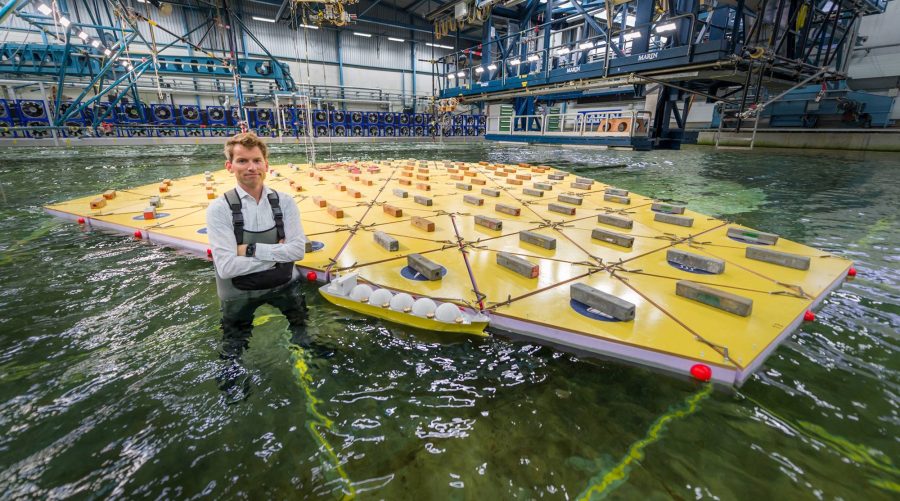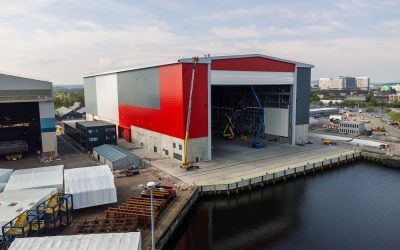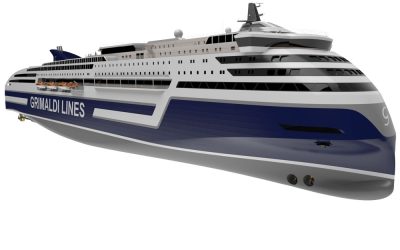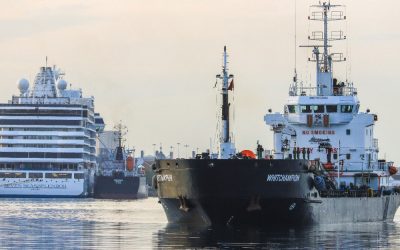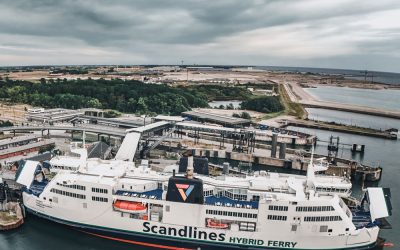Netherlands project integrates technology, governance and ecology for new perspectives on climate-proof, large-scale floating structures
The UN estimates that two out of every five people in the world live within 100km of the coast, and that 90% of megacities worldwide are vulnerable to rising sea levels due to climate change. With nowhere to expand, rapid population growth in these areas is upping the pressure for space for living, industry, the energy transition and food production.
Large-scale floating structures are an attractive solution to these challenges and the fact that the Dutch are at the forefront in their development should come as little surprise – the Netherlands is one of the most densely populated nations in the world and approximately 60% of the country is already prone to flooding (around a third of which is below sea level).
Olaf Waals, head of Offshore at MARIN (Maritime Research Institute Netherlands), tells The Naval Architect that the research facility has been working on large ‘floating islands’ for many years. “Climate change, land scarcity and population growth are all motives. We feel a strong responsibility in solving these social challenges,” he says.
Waals is also official secretary of MARIN’s Floating Future programme. The project, which recently received €5.3 million in funding from the Dutch Research Council (NWO), was initiated in partnership with think tank the Blue Revolution Foundation with the aim of providing the next step in the Netherlands’ transition from “fighting against water to living with water”.
“Floating Future is an interactive research project involving a unique mix of industry, research institutes, academia and governmental organisations. We want to understand how the upscaling of floating structures could offer a climate-proof solution for space limitations in the Dutch Delta,” explains Waals.
“If we want to scale up this floating infrastructure, we must take steps in terms of technology and in terms of social acceptance of living and working on the water. In Floating Future we investigate just that,” he adds.
The programme’s work will be divided into three clusters addressing technology, governance and ecology, with researchers collaborating with experienced societal partners to deliver an integrated vision, design and policy guidelines, project proposals and an inventory of the required resources and milestones to implement a floating future for the Dutch Delta.
Pilot cases will be developed for inland, coastal and offshore applications. These will include floating city districts near the centre of Rotterdam, flexible floating space for port developments such as sustainable fuel storage and bunkering, and offshore applications to support the energy transition.
Waals admits the technological challenges are high but believes large-scale islands could be technically feasible within the next couple of decades if the right questions are asked. “Today’s large floating structures are maybe 300m long by 80-100m wide, but here we’re talking about kilometre-by-kilometre size,” he says. “This raises questions like, how do we develop mega structures of that size that are strong and safe in storms and currents? What are the mooring forces to that scale? What materials should be used?
Waals emphasises that societal breakthroughs will be crucial to create governance arrangements for floating islands – no regulatory framework exists yet for building large-scale floating cities, for example – and for societal acceptance of living and working on water. “Would you live in a floating city or work on a floating island?” he asks. “It’s a mindset that needs to be studied.”
He adds that there are also important ecological questions to be answered: “What is the influence of a big floating community on the water underneath and around? How do we make the system completely circular in terms of water, energy, raw materials and waste?”
“I’m just a naval architect by background so I don’t have an answer to those questions,” Waals notes. “My role in Floating Future is to bring together experts who do and see if we can start thinking in the right direction. This integrated approach will result in new perspectives on how we can use floating technology.”
The implementation of the Floating Future programme and its various work packages will take place over the next five years, with a presentation of the first research results expected sometime in 2024.
“I believe this project will help to shape the future of the Netherlands and many other countries that are close to or below sea level,” Waals concludes.
